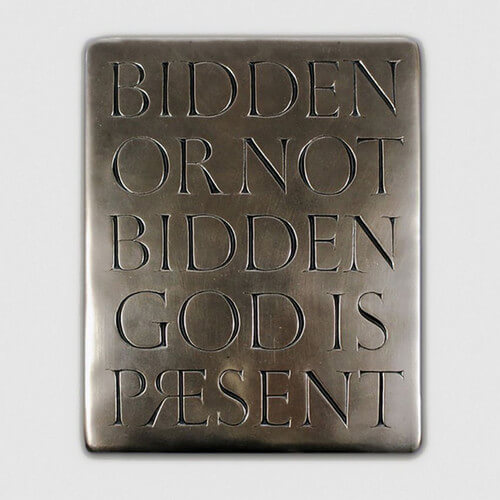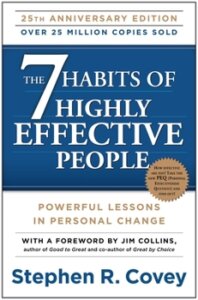
Bread of Life
Jesus said, “I am the bread of life. Whoever comes to me will never be hungry, and whoever believes in me will never be thirsty.”
Then the Jews began to complain about him because he said, “I am the bread that came down from heaven.” They were saying, “Is not this Jesus, the son of Joseph, whose father and mother we know? How can he now say, ‘I have come down from heaven’?” Jesus answered them, “Do not complain among yourselves. No one can come to me unless drawn by the Father who sent me; and I will raise that person up on the last day. It is written in the prophets, ‘And they shall all be taught by God.’ Everyone who has heard and learned from the Father comes to me. Not that anyone has seen the Father except the one who is from God; he has seen the Father. Very truly, I tell you, whoever believes has eternal life. I am the bread of life. Your ancestors ate the manna in the wilderness, and they died. This is the bread that comes down from heaven, so that one may eat of it and not die. I am the living bread that came down from heaven. Whoever eats of this bread will live forever; and the bread that I will give for the life of the world is my flesh.”
Our gospel is the second of three parts in Jesus’ bread of life discourse.
I hope you all were blessed to hear Maggi’s masterful, rich sermon last week. It’s on the Emmanuel website, where Ellen Vadney faithfully posts all of the videos of our sermons.
Maggi spoke of the ways that some word, phrase, image in the liturgy, the Book of Common Prayer, or the Bible may be a portal that suddenly opens us to a fleeting encounter with holiness. Those encounters are moments of blessedness that cannot be described, captured, or repeated.
My beloved Claudia and I each had one such moment in Maggi’s sermon at the 8 o’clock service. We were both so moved that we were silent throughout the rest of the service.
Encounter with Holiness
When Maggi spoke about what we hunger for, it took me back 30 years to my first, and pivotal encounter with holiness. I rarely tell the story and I hope you don’t mind my sharing it now.
At the time I was Senior Curator at the Dallas Museum of Art. Though I had been very active at Christ Church Cathedral, Houston, throughout my youth, I stopped when I went to college. I majored in art history, fell into an amazing museum job, and was launched into an exciting art museum career for which I will always be grateful.
Sadly, though, I wasn’t just a lapsed Christian. I had hardened my heart about faith. I was an aggressively arrogant agnostic.
I was good and successful at my work. My career was my life. It became my false god. I had loving parents, many loving friends and my fair share of beaux. But I never married. I never let love for another person interfere with my agenda, my career. I’m not proud of that, just honest.
In my early mid-forties, I had the kind of classic mid-life crisis in meaning that successful men have long written about—think Dante’s Divine Comedy, and much more recently David Brooks’ The Second Mountain or Richard Rohr’s Falling Upward.
 I was baffled by the emptiness I felt. So, I turned to self-help books—haunted the self-help section of Barnes and Noble. One title summed up the way I felt: My Life Seems Great, why do I feel so Awful? Steven Covey’s best-selling Seven Habits of Highly Effective People nailed me. I did alright with the first six habits, but not the seventh. If you read the book, you may recall: it’s “Sharpening the saw”: highly effective people regularly renew themselves socially, intellectually, and spiritually.
I was baffled by the emptiness I felt. So, I turned to self-help books—haunted the self-help section of Barnes and Noble. One title summed up the way I felt: My Life Seems Great, why do I feel so Awful? Steven Covey’s best-selling Seven Habits of Highly Effective People nailed me. I did alright with the first six habits, but not the seventh. If you read the book, you may recall: it’s “Sharpening the saw”: highly effective people regularly renew themselves socially, intellectually, and spiritually.
Ouch. Okay. Find a church. The Episcopal church was out. I didn’t “believe in” the Virgin Birth, so couldn’t say the Creed. Where do agnostic Episcopalians drift? Unitarianism!
Another lapsed Episcopal friend of mine and I made a date to go together to a Unitarian church. On the fateful morning, she cancelled. So I called another friend and she said I could go with her. She came and picked me up. I never asked where.
God is so good!
We came to St. Michael and All Angels Episcopal Church, Dallas. Thank God it was Rite I! Although I had no experience of the new BCP, I scorned it on principle! Detached in the service, I found fault with everything: the church’s contemporary architecture, a middling sermon, music was loud and unmodulated—too bright.
Then, suddenly, I was struck in the Eucharistic prayer: “this is my body, which was given for you”. My eyes, my heart, were opened to the living power of that sacrifice.
There are no words. The walls I had built around my heart dissolved as the power of God filled my whole being. I felt totally loved, totally embraced as I was, totally forgiven. I was home. In an instant the bread of life had come to fill my hunger for meaning.
For weeks I simply went back to St. Michael’s every Sunday. I didn’t want to chat, have coffee, get involved. Just to worship and weep grateful tears. It was the first step on the path that brought me to hearing and accepting my call to priesthood a couple of years later.
Utterly Changed
My life was utterly changed. First off, I went to church every Sunday—no matter where my work took me. Appropriately at that stage, it was a solitary journey.
But it was also a lonely one.
None of my colleagues and very few of my nearest and dearest were people of faith. I didn’t tell any of them the whole story. Who ever heard of an Episcopalian having a conversion experience?
Some whom I dared to tell I had returned to church were skeptical, a few were hostile–afraid I would become the kind of angry fundamentalist that the secular news media focused on.
In time they accepted this odd change, when they saw that I was still me, and I didn’t want to convert them!
 When I moved back to Houston for what would be my last museum job, I rejoined my home Cathedral. Then I was ready fully to take part in everything, including the dynamic program of ministries. The community nurtured and expanded my nascent faith and finally raised me up for ordination. Sharing my conversion story in the discernment process I learned it could be hurtful to a lifelong, faithful member who wondered why such a thing had happened to me and not to her. I wondered, too. But I knew that’s what it had taken to turn me around. Like Saul, I had to be knocked off my horse.
When I moved back to Houston for what would be my last museum job, I rejoined my home Cathedral. Then I was ready fully to take part in everything, including the dynamic program of ministries. The community nurtured and expanded my nascent faith and finally raised me up for ordination. Sharing my conversion story in the discernment process I learned it could be hurtful to a lifelong, faithful member who wondered why such a thing had happened to me and not to her. I wondered, too. But I knew that’s what it had taken to turn me around. Like Saul, I had to be knocked off my horse.
I never had another dramatic encounter like that: more the still, small voice if I would ask and listen. But as my faith has grown, more and more I see “God’s hand at work in the world around me” (Eucharistic Prayer C).
Fleeting Encounters with the Holy
Fleeting encounters with the holy may happen at any time in worship, of course. But God is always present. And portals to feeling God’s blessing and goodness are everywhere: in nature, in acts of kindness, in art, in music. We need to be open to them: listening and seeing with the ears and eyes of the heart.
Claudia is much more attuned than I. She gently helps me and other friends recognize holy moments in “unusual experiences”–things that we might dismiss as “coincidence.” And Claudia urges us to talk about them. Looking back at my life I see how God’s guiding hand was there again and again as I stumbled along. When we share these “unusual experiences” with one another, we name and honor God’s abiding presence and care—in all times and in all places.
 “Bidden or unbidden, God is present”. Pioneering psychoanalyst Carl Jung had those words inscribed over a door in his home in Switzerland.
“Bidden or unbidden, God is present”. Pioneering psychoanalyst Carl Jung had those words inscribed over a door in his home in Switzerland.
Bidden or unbidden, God is present. If we trust in that truth, and gently speak of the ways we recognize God’s presence in various moments, we may help others begin to see the world a bit differently, to see God’s blessings and presence in their lives. That may even crack open a portal for us or some else.
We live in a period of cynicism, contention, fear, and strife. God is always present, inviting us in ways large and small to work with God for the good. We may doubt the signs. We may shy from the vulnerability of sharing them.
But let us take the risk to help awaken ourselves and other people to them. Let’s take the risk to help God transform the world—one blessed moment at a time.
